The next evolution in begging for forgiveness has arrived: the dogeritsu
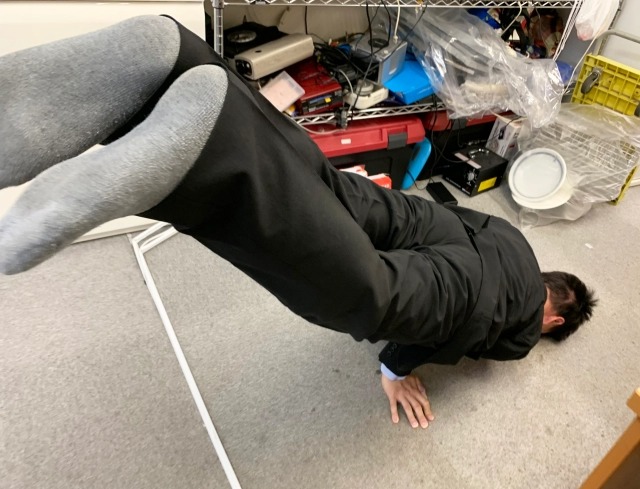
A breakthrough in penance.
In Japan, mid-spring is when most new employees join the workforce for the first time. As such, at this time of year it’s important for them to be developing and improving skills they may not have been taught in school, things like calling in sick while doing yoga positions for a believable voice, and more importantly, how to grovel after you get caught calling in sick while doing yoga positions for a believable voice.
In Japan, the ultimate gesture of apology is called the “dogeza.” This is the posture often referred to by the Chinese name “kowtow” in English, in which a person gets down on their hands and knees and touches the ground with their forehead.
▼ It’s not uncommon for a dogeza to occur in our office.
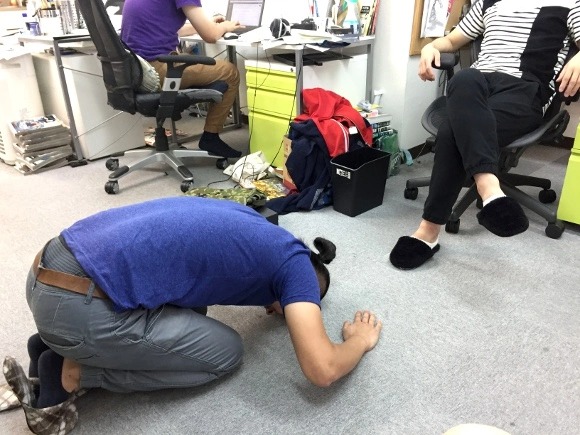
It is the height of deference in the sense that one cannot bow any further without somehow breaking through the floor…or can they?
Our resident screw-up Seiji Nakazawa, after repeatedly angering friends, co-workers, and loved ones, found that his dogeza was losing its potency and conducted research to develop something more pacifying: the dogeritsu.
As a demonstration, let’s watch Seiji apologize to Mr. Sato for accidentally emailing a sexy Sato photo to Mr. Sato’s father in rural Shimane.
▼ “Subject: Happy Birthday Pa!”

▼ Seiji: “Mr. Sato, I have something important to tell you.”
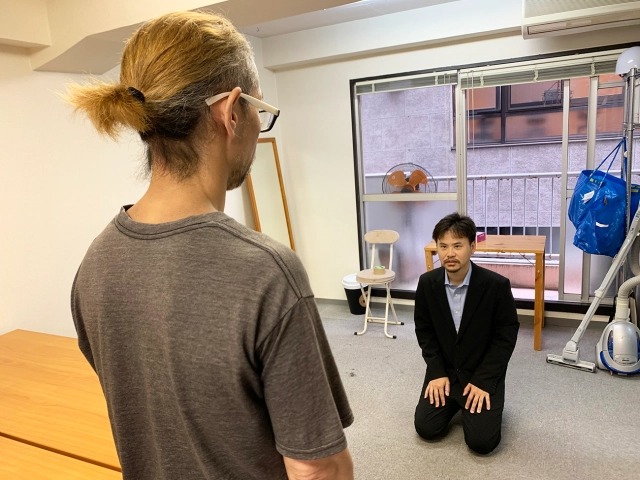
▼ Seiji: “Just a…ugh…sec…unh”
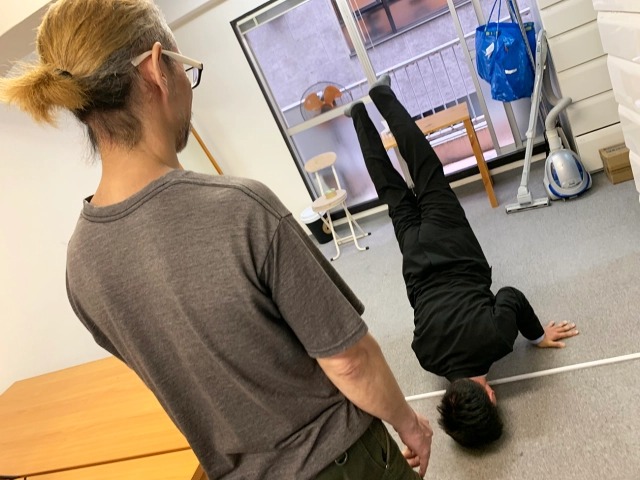
▼ Mr. Sato: “Cool…”
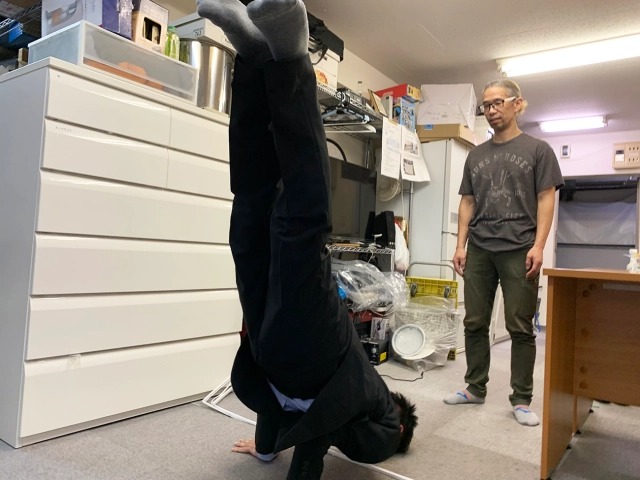
▼ Mr. Sato: “That was so surprising and impressive I forgot why I was angry. Just seeing something like that is kind of overwhelming.”
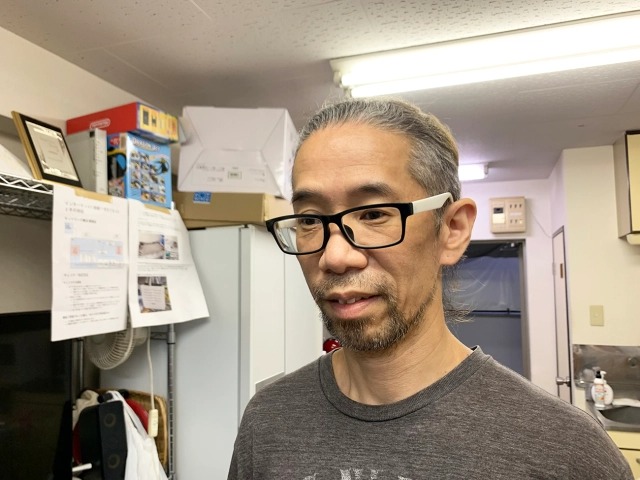
And therein lies the true power of the dogeritsu. Unlike the token gesture of a dogeza that merely leaves the offended party stewing in their juices or rage, the dogeritsu employs shock and awe to relieve that person of their anger, flushing it away with a wave of absurdity.
And now you can too!
Watch as Seiji teaches us all how to do a dogeritsu:
1) Kneel down and align your hands on the ground.
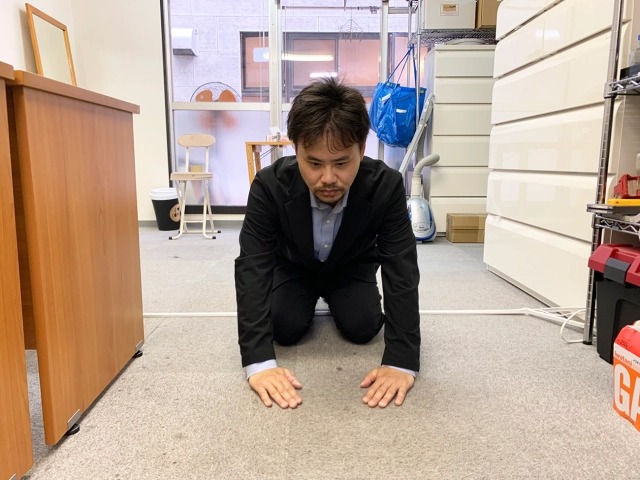
2) Press your head on the ground while shifting your stronger hand under your stomach.
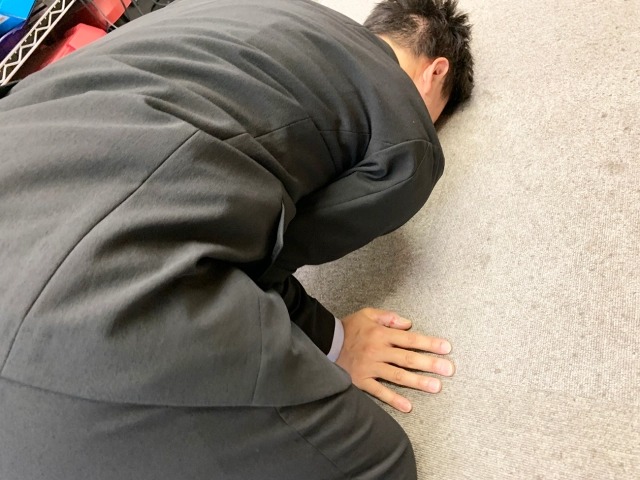
3) Wedge the elbow or your dominant arm under your midsection for support as you lift your legs straight in the air. Your other arm will simply provide balance but can take on weight as needed.
▼ A better look at how your hands and head should be oriented
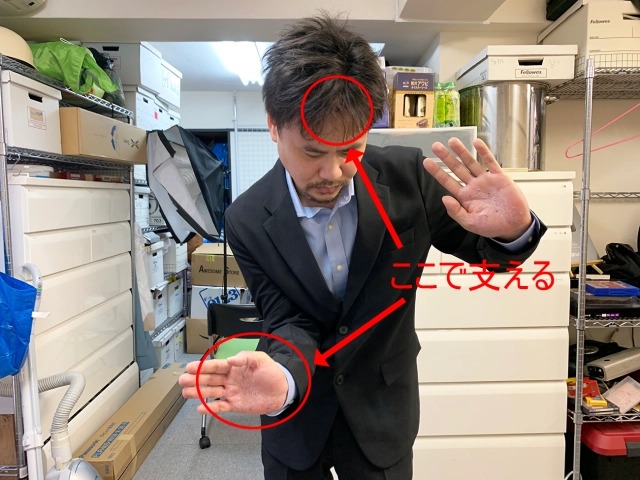
4) Ensure your legs are straight and aligned for the maximum effect.
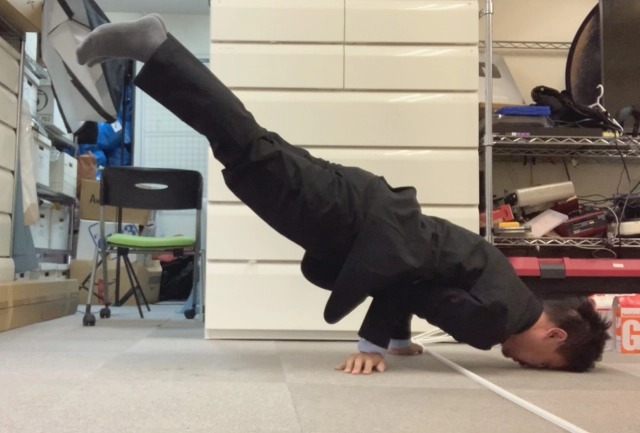
And that’s it!
Seiji also advises to be aware of the distance between your dominant hand and head. The closer they are together, the steeper your dogeritsu will be. A steep dogeritsu will certainly be impressive, but requires more strength to hold up against gravity. Be sure to find a suitable distance for your own body type and strength.
▼ A sideways dogeritsu is also acceptable
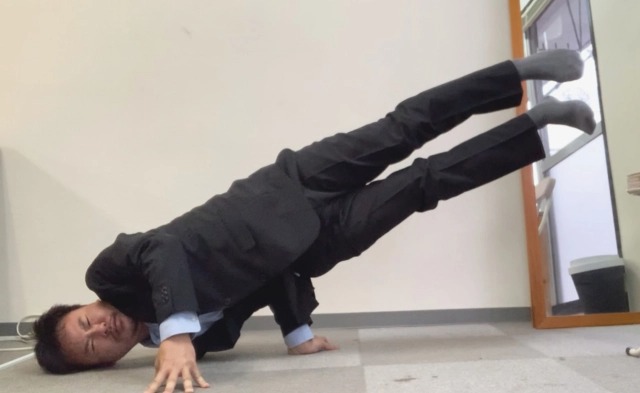
In an age of ever more inexplicable and inexcusable offenses, more sophisticated apologizing techniques are needed to keep pace. So be sure to add the dogeritsu to your repertoire before it too fades in impact.
Photos ©SoraNews24
● Want to hear about SoraNews24’s latest articles as soon as they’re published? Follow us on Facebook and Twitter!
Credit:

0 comments: